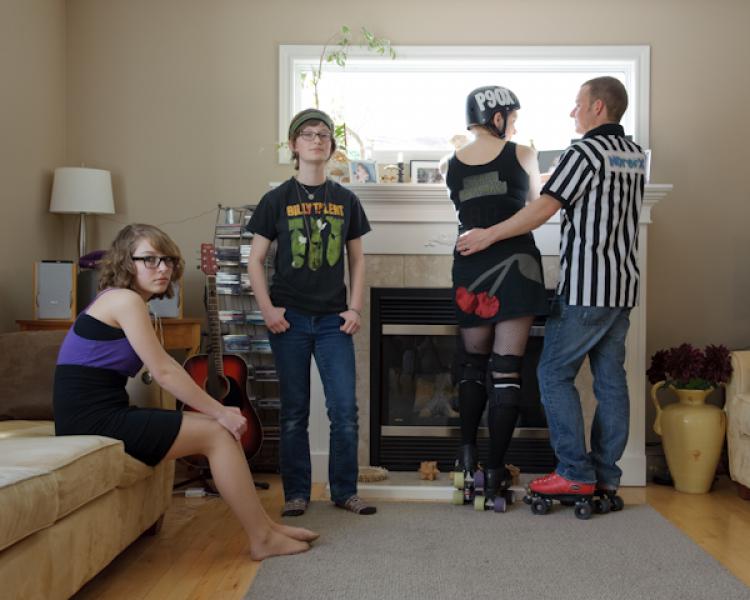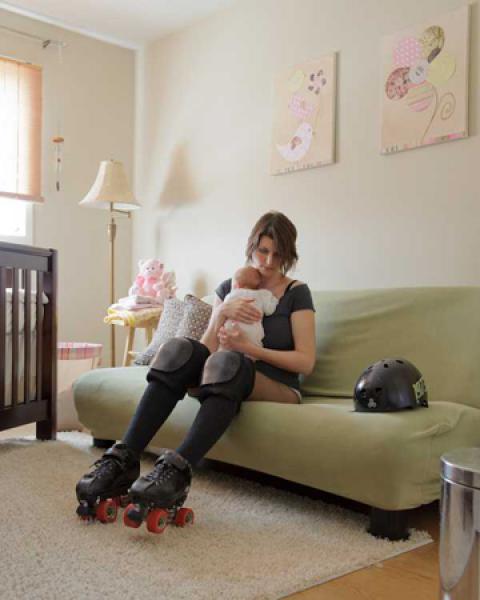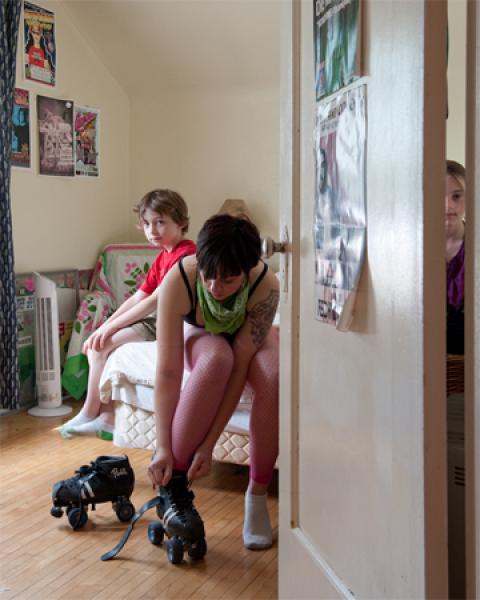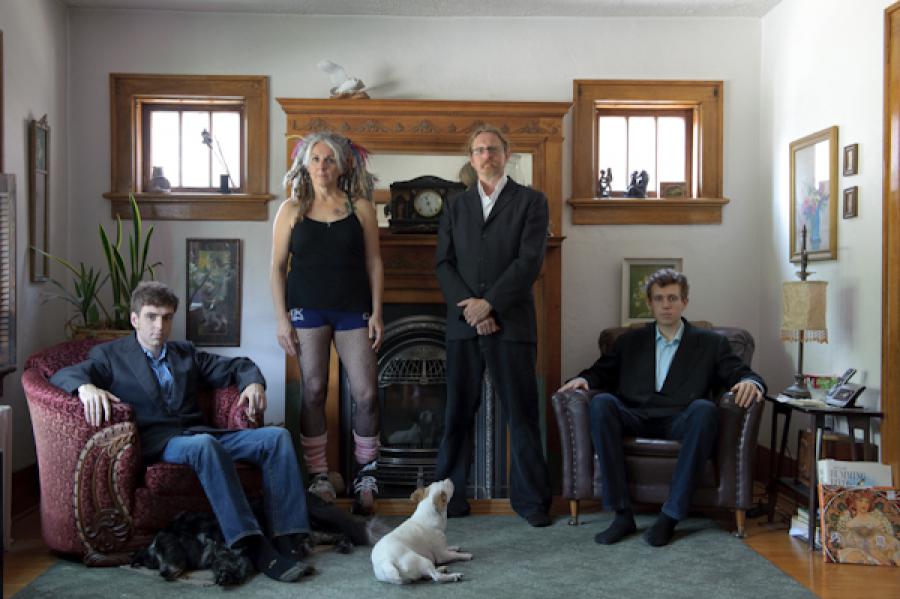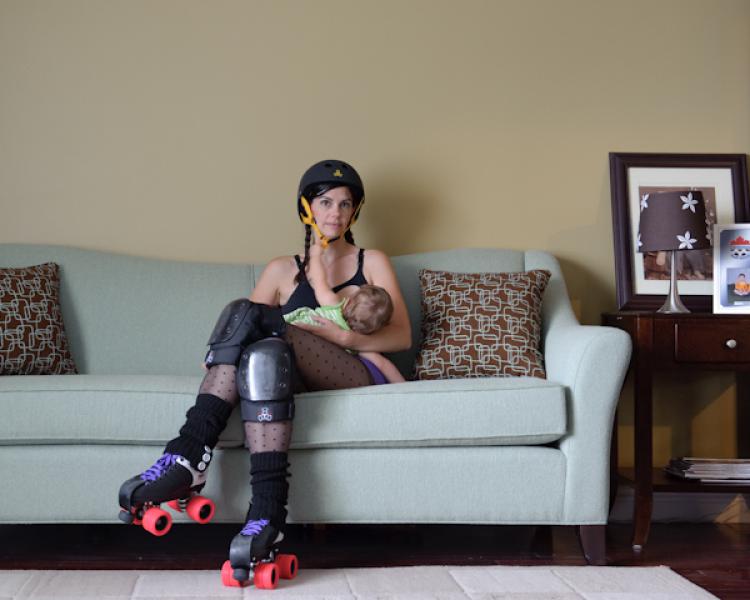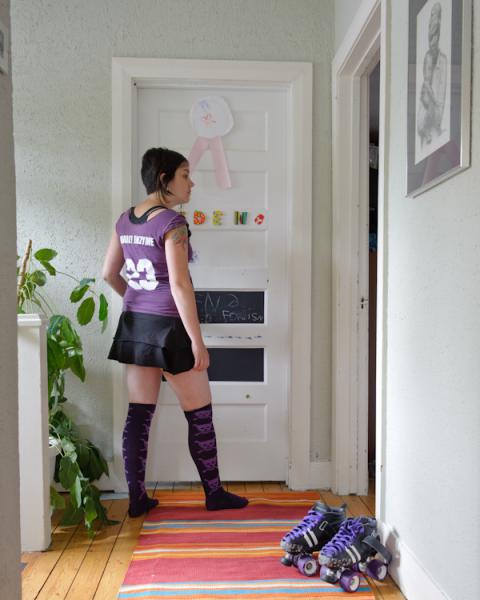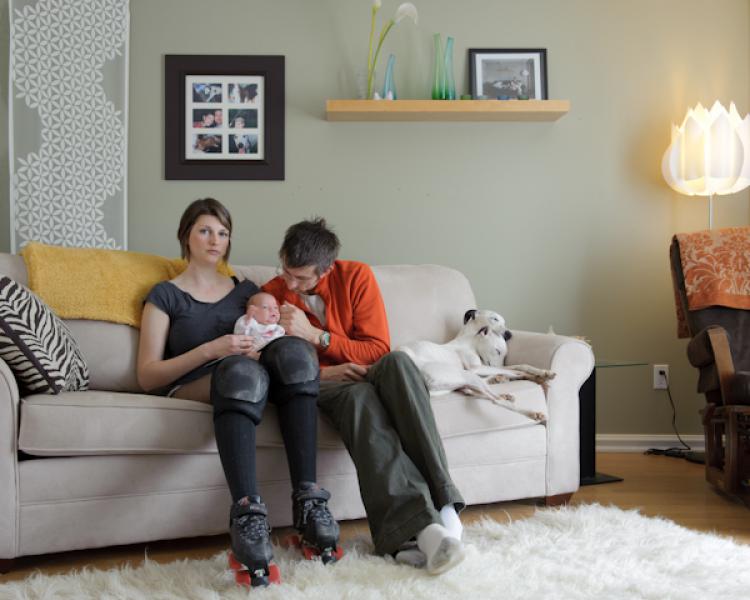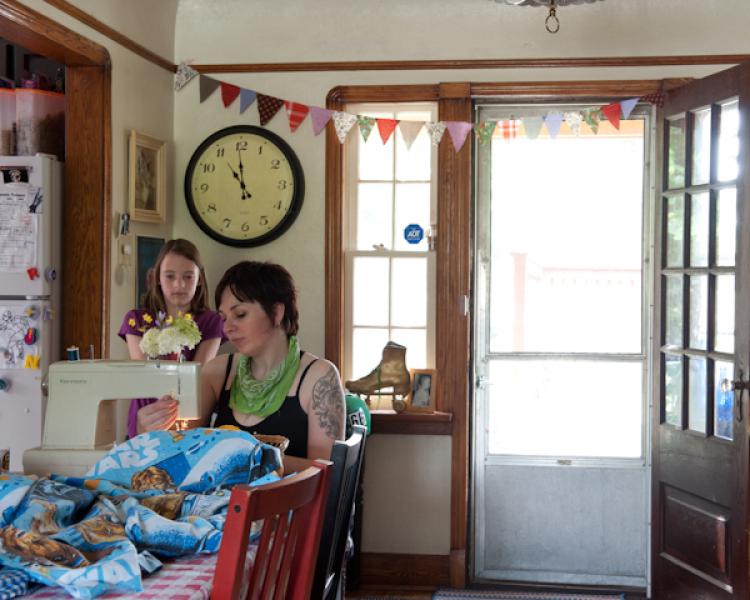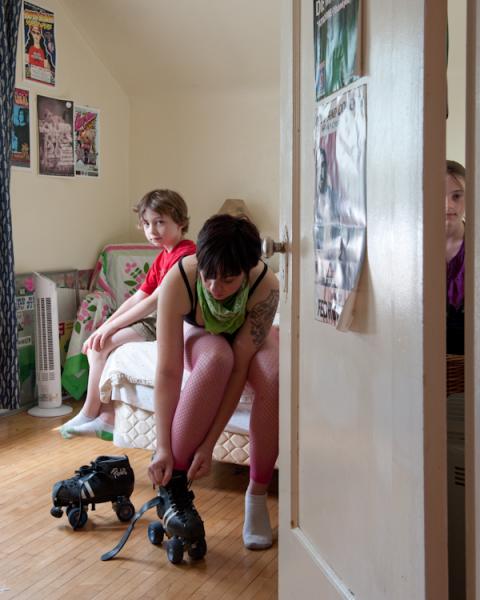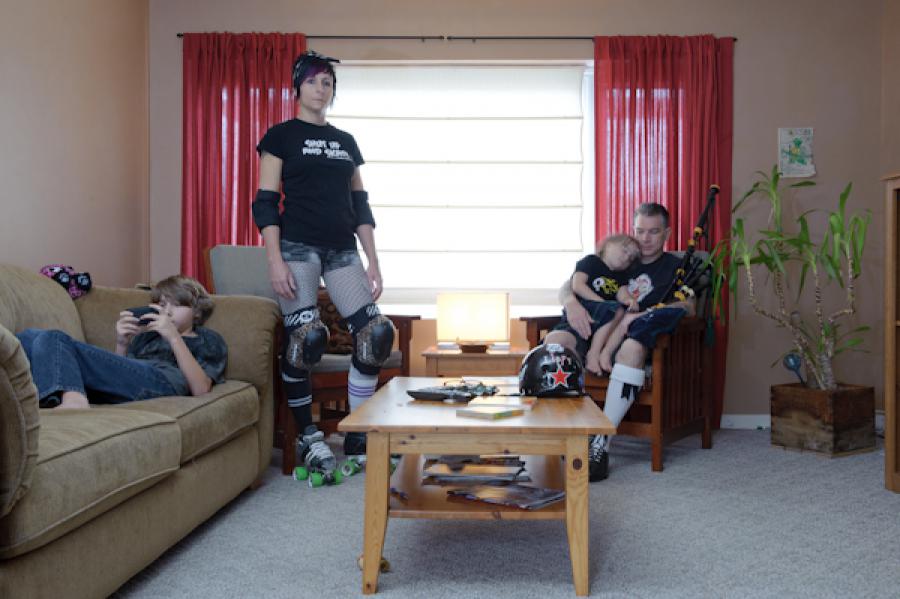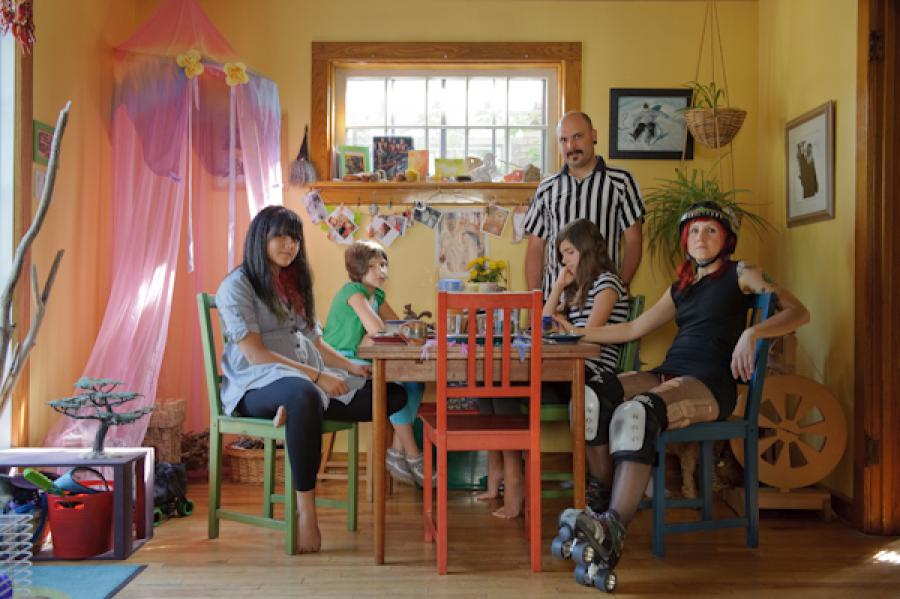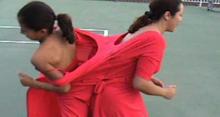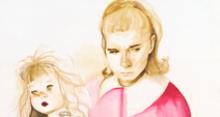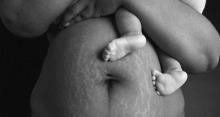Yes These Bones Shall Live

I got the idea for this project after my very good friend joined a roller derby league, and I saw her play her first bout. From the very first I was fascinated with the sport--I was intrigued by the gender play at work, the way the women played with ideas of sexiness and aggression while participating in a very physically demanding sport. I immediately wanted to know more about the women behind the derby personas.
I was especially intrigued to see so many children at the match. Many derby girls are also mothers, and their whole families come out to watch. Typically, when you assume the identity of mother, a host of expectations immediately follows. Mothers are caught between an impossible ideal and a society that profoundly devalues their work. Soft, warm, innately nurturing, no longer sexual, weak, passive, subservient to others' needs, self-sacrificing--in reality, mothers are more complex than any list could suggest. What better way to subvert the stereotypes and prescriptions than to don fishnets and engage in a legitimate, full-contact sport that also plays with performance, sexuality and aggression?
Kate Wilhelm holds a B.A. from the University of Guelph and was recently named a 2011 Critical Mass Finalist and a 2011 Flash Forward Emerging Photographer. Her work has been exhibited locally and internationally, including Mother/mother-* (New York City) and New Normal (Colorado). The Robert McLaughlin Gallery, Oshawa, Ontario’s public gallery, will feature her work in its biennial, three-person emerging artist show in 2012. Her work was also included in The M Word: Real Mothers in Contemporary Art, published in 2011. She lives in Guelph, Ontario (Canada). See more of Kate's work at www.peripheralvision.ca.
Related Content
|
Maria Adela Diaz’s video performance demonstrates the mother-child bond and the need for “Detachment” in order for both to grow as individuals. |
Catherine Haley Epstein’s paintings touch on the many ways women’s identities shift and change when they become mothers. |
Margaret Lazarus’ film “BirthMarkings” explores our post birth bodies—and how our self-image—change after giving birth. |
V. Kottavei Williams’ work uses recycled records, boxes, paint, and other materials to depict mothers as powerful, vibrant, and engaged. |
